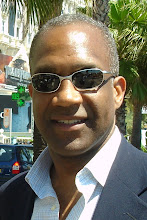 Recent news of a former professional acquaintance who -- much to the consternation of his colleagues -- was apparently scheming to stay-on in his current job beyond his normal tenure, reminded me of another all too human proclivity: Narcissism.
Recent news of a former professional acquaintance who -- much to the consternation of his colleagues -- was apparently scheming to stay-on in his current job beyond his normal tenure, reminded me of another all too human proclivity: Narcissism.Narcissus, according to both Greek and Roman mythology, was a handsome but vain young man who spurned all who loved him, and upon seeing his reflection for the first time, fell in love with himself; the tragedy, of course, being that he could see but never touch the object of his affection.
Today, we usually regard persons as narcissistic if they are vain or seem to love themselves more than all others.
I must confess to having given in to narcissistic tendencies, as we see all too often with the leader who schemes for another term in office -- the constitution be damned; the aging athlete who fears life's prospects apart from adoring fans; or the senior military officer who cannot imagine life without the military, even as the military has decided that it will do just fine without him.
In the Book of Ecclesiastes, its writer says that there is a time and a purpose for everything under heaven. Some transitions -- such as job promotions, weddings, the birth of children, and new prospects in exciting places -- are greeted eagerly. Other transitions -- such as the inconveniences of aging, forced career changes, or even the departure of adult children to situations and locations that are strange and distant -- are greeted less eagerly. Yet, both kinds of transitions are a part of the "deal." The more narcissistic we are, the more we want to avoid the unpleasant bits, and keep the sweetest parts of the deal to ourselves.
In my former colleague's case, I suspect that he had developed special relationships and knowledge in his current assignment that would be of special value to his current and future bosses. The military is a particularly risky place to advance this line of reasoning in the pursuit of job longevity, since it is an article of faith in the better military forces of the world that all persons are replaceable. Or, as the late French General Charles de Gaulle said: "The cemeteries of the world are filled with indispensable men."
The Scriptures can help us avoid narcissism which, if the truth be told, irritates everyone except the person who is captivated by his or her own virtues, value, or abilities.
The Bible tells the follower of Jesus that he or she ought to look out for the interests of others as one looks out for one's own interests. (Philippians 2: 4) Many times, when we've stayed "in the chair" beyond our time, it robs someone coming along behind us of the opportunity to learn as we've learned because we're occupying the spot! Looking out for the interests of others means doing for others as we would have others to do for us -- and that includes stepping aside. (Matthew 7: 12)
In a less direct way -- through the lives of others -- the Bible also reminds us that what we sometimes regard as negative experiences are frequently the "training" we need for other "jobs" and "assignments" in one's life and career.
Consider the life of Moses, who had risen high in the ranks of Egyptian leadership before fleeing a murder accusation to the backside of the desert to tend sheep for 40 years which, at the time, must have seemed to Moses like the end of the end to a very promising career. As is often the case when our careful planning seems to go awry, God was just getting started. A wilderness apprenticeship was precisely the training Moses would need to lead God's little flock -- the Children of Israel -- in the wilderness following the Exodus.
The epilogue to the Exodus story is that Moses did not live to enter the Promised Land because the work the Lord had given Moses was finished. The Lord God chose the protege of Moses, Joshua, to lead the Children of Israel across the Jordan River into the Promised Land.
What if you and I aspired to be like Moses: A person who accepted both the sweet and the bitter of life with equal grace; who refused to sulk when reversed; and who easily yielded the stage to Joshua, a person whose interests he had guarded as carefully as his own?
If we dared to try, it would transform us for better; and it would gladden the heart of God.
Art Credit: Narcissus by Caravaggio




No comments:
Post a Comment